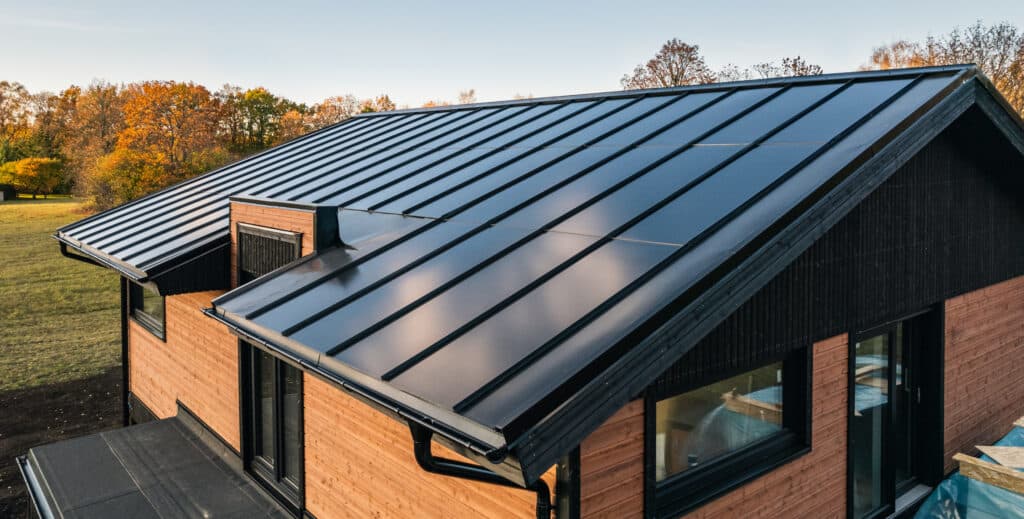Electric Vehicles are taking over the motor industry. At Smartly, we couldn’t be happier, and we’re leading from the front by providing the best online source to learn about EV charging and committed to providing only the best charging products for customers in the UK.
Quick Summary
- Charging your electric vehicle is simple with a dedicated fast charger installed at your home and/or workplace.
- Charging times and costs vary depending on several factors. For example, the power of the charger, size of the battery, and electricity tariffs.
- Certain grants are available for installations – although, as of 31st Mar 2022, grants for homeowners are no longer available (apartment owners and property renters are still eligible).
What are Electric Vehicles?
Electric Vehicles (EV), sometimes known as Battery Electric Vehicles (BEV), have an electric motor instead of an internal combustion engine, and a battery instead of a petrol/diesel tank. Plug-in Hybrid Electric Vehicles (PHEV) are a combination of electric and vehicle, so they have a battery, petrol tank, electric motor, and internal combustion engine. EVs rely fully on an electric charge, and PHEVs can be operated with battery power, or petrol (or a combination of both).
How do I charge my Electric Vehicle?
You can charge your electric vehicle at home, workplace, or at any public charge point. There are currently over 30,000 public electric vehicle charge points, of which over 5000 are rapid chargers. Home chargers are a must when it comes to using an electric vehicle, as it would be difficult to rely on public charge points as the only charge method.
You can install an EV charger if you have one of the following:
- A home or workplace with dedicated off-street parking (for example, a driveway or garage)
- A dedicated parking space (for example, if you own an underground parking space in an apartment block or an office car park)
You require power at the location too. If you do not own your property, we advise seeking permission before installing the charge point.
Home and workplace chargers vary in size, looks and features:
- Tethered or untethered – Do you want a cable permanently attached to your charger or do you wish to attach a separate cable, which you can then use at public charge points?
- Wi-Fi or 4G connection – Most chargers now connect to the internet, and you can monitor and control your charging via a mobile app. As of 30th June 2022, all new chargers sold in the UK must have this functionality.
- Looks – Do you want your charger to be darker and more subtle, or bright to stand out? Do you want a stylish design or small, simple, and effective one?
Smartly has partnered with the UK and Europe’s top charger manufacturers to provide the highest quality, most reliable and best-looking chargers. We only partner with premium brands that have a track record of outstanding products. We handpick the products we sell and rigorously test them to make sure we know them inside out and can advise customers on even the tiniest details.
We have made sure all our chargers are “smart” so you can connect them to the internet and control the charging. This is great for a few reasons!
- It gives you more control of when you charge and how much you charge.
- It means you can save money by picking off-peak times to charge your car.
- Generally, the cheapest electricity is overnight, and this is when electricity is also greenest (more of it is generated from wind or nuclear) so smart charging cuts your carbon footprint too!
- If you have any issues with your charger, being smart means that manufacturers can diagnose (and sometimes fix) faults easily and remotely.
EV Charging Explained
Most electric vehicles have two sockets, one for AC charging and one for DC charging. AC charging can be categorised as slow or fast, and these chargers can be installed in the home, workplace, and public areas. DC chargers, also known as “Rapid Chargers”, are bigger dedicated charge points found in some workplaces and public charging areas – for example at motorway service stations.
SLOW – up to 3kW
Slow (or Mode 2) AC Charging is the method of electric vehicle charging with a non-dedicated 3-pin domestic socket. Slow Chargers, with a traditional 3-pin plug at one end, charge VERY slowly (2.3-3kW), hence why they are also known as “Granny” Chargers. Some car manufacturers only supply this type of charging cable, but we recommend just keeping it for emergencies.
We highly recommended installing a dedicated EV charger at your home and/or workplace which is much safer and faster. 3-pin sockets are not designed for extended periods of charging. Also, EVs require communication between the car and charger so require more than the standard three pins.
FAST – 7 to 22kW
Fast (or Mode 3) AC Chargers are much faster than 3-pin chargers. They are purpose-built dedicated chargers installed in homes, businesses, or public areas. These are the main types of chargers UK homeowners purchase for charging their EV.
Our handy VEHICLE SELECTOR TOOL will show you which type of cable/charger is compatible with your car. In the UK, most EV/PHEVs have Type 2 connections but check to be sure. More information on each type is below and in our dedicated Ultimate Charging Cable and Connector Guide [LINK]:
Type 1 (or J1772) connectors are the standard in USA and Japan. In the UK, some older EV and PHEV models have this connection. For example, older models of the Nissan Leaf and the Mitsubishi Outlander PHEV. Home and public fast chargers have a type 2 connection so if your car is Type 1, then purchase a Type 1 to Type 2 cable. [LINK to STORE]
Type 2 (also known as IEC 62196 or Mennekes). Since 2013 it has been the official connector type in Europe. All UK fast chargers have a Type 2 connection, and the majority of UK EVs and PHEVs have Type 2 connections, so you would require a Type 2 to Type 2 cable. Our handy VEHICLE SELECTOR TOOL will show you which type of cable/charger you require.
RAPID – 50kW to 150kW+
Rapid DC Charging are super-fast chargers located in public areas like motorway service stations. You don’t need to purchase a cable for Rapid DC Chargers as they usually have tethered cables.
CHAdeMO is the original DC charging connector. It is less common than the newer CCS connector. You can still see it on the Nissan Leaf. Charging power is usually around 50kW.
CCS is the new standard for Rapid DC Charging. Charging Power can reach 150kW+.
Tesla allows you to use the existing Type 2 socket for Rapid DC Charging at their own Tesla Superchargers which can charge at 150kW+.
EV Charging Time
Depending on your battery size (kWh), and charging power (kW), the approximate charge time can be found below:
| Charger Power | Charge Time (30kWh Battery) | Charge Time (60kWh Battery) | Charge Time (90kWh Battery) |
| 3kW | 9 hours | 18 hours | 27 hours |
| 7kW | 4 hours | 8 hours | 16 hours |
| 22kW | 1.5 hours | 3 hours | 6 hours |
| 50kW | 30 minutes | 1 hour | 2 hours |
It is worth noting that the maximum charge speed is determined not just by the charger power, but also by your vehicle’s on-board charger (the charger built into the car). [Our vehicle selector lets you know your on-board charger speed]. For example:
- A PHEV with a 3.5kW on-board charger will only charge at 3.5kW per hour with a 7kW or 22kW charger.
- An EV with an 11kW on-board charger will charge at 7kW per hour from a 7kW single-phase supply but only 11kW per hour from a 22kW three-phase supply.
EV Charging Cost
A hot topic now, with skyrocketing home electricity costs across the UK. The cost can vary depending on the charging location, as some public charge points are free. An average home charge is £4 for a range of 100miles (depending on your tariff). You could save around £1,400 a year on fuel by switching from petrol to electric if you cover 10,000 miles per year.
A quick guide to working out cost is by multiplying your electricity tariff by your EV battery size. For example (using 15p per kWh as an average UK electricity price):
| Car | Battery Size | Range | Calculation | Cost to Charge |
| Nissan Leaf | 37kWh | 140 miles | 15p x 37kWh | £5.55 |
| Audi Q4 e-tron 40 | 76.6kWh | 250 miles | 15p x 76.6kWh | £11.49 |
| BMW iX xDrive 50 | 105.2kWh | 315 miles | 15p x 105.2kWh | £15.78 |
Note that the cost above is for the entire battery charge. Most drivers would not charge their car from empty to full regularly, only charging to 80%.
You can also use self-generated electricity (from Solar panels, for example) to charge your EV for free – this is becoming more and more economically viable with solar panels becoming cheaper and electricity increasing in price. Combine Solar panels with battery storage and you could store the electricity generated during daylight hours to use at night.
You can also change Electricity Supplier to one which offers a dedicated EV Tariff, which allows cheap charging at off-peak times (for example 5p per kWh as opposed to 15p per kWh).
Cost to Buy an EV Charger
Costs range from approximately £500-£3000 for EV chargers. Most UK households have a single-phase (230V) supply, which require a 7kW single-phase charger. Public or workplace chargers can have a three-phase 22kW supply.
Have a look at our EV charger selection, hand-picked and rigorously tested by our expert team [LINK]. If you are unsure which charger to choose, read our EV Buying Guide or use our Vehicle Selector Tool to help show you the chargers and cables which are compatible with your vehicle. [VEHICLE SELECTOR LINK]
If you have any questions, we’re happy to help! [CONTACT US LINK]
EV Charger Installation
Only fully qualified professionals should install your charger. We are happy to recommend local approved installers, [INSTALLER LINK] or contact your local electrician. You will most likely need a new cable installed in your household or workplace consumer unit/fuse board, and the charger attached to an outside wall of your house/office or in a garage. Both the cable and charger do not usually require a large amount of work but check with the qualified electrician.
Domestic Installations
For home installations, the average cost in the UK is £400. The UK’s OZEV grant ended in March 2022 for single unit homeowners. Apartments owners and those who rent their accommodation are still eligible from 1st April 2022 with a newly named “EV Chargepoint Grant”.
Scottish residents can also still apply for £250 funding through the Energy Saving Trust.
If you have any questions, please let us know! Our expert team is happy to help! [LINK to CONTACT US]
Workplace Installations
For businesses, the Government Workplace Charge Scheme (WCS) offers grants for installation. More details can be found here on the UK government website. All the EV Chargers on smartlycharging.com are approved for installation in the WCS.
The grant covers up to 75% of the total costs of the purchase and installation of EV charge points (inclusive of VAT), capped at a maximum of:
- £350 per socket
- 40 sockets across all sites per applicant – for instance, if you would like to install them in 40 sites, you will have 1 socket available per site
After applying using the online application form, successful applicants are issued with a unique identification voucher code by email, which can then be given to any OZEV-authorised WCS Installer. [Link to the approved WCS installer list]. All the EV Chargers on smartlycharging.com are approved for installation in the WCS.
Once the charge point(s) have been installed, the authorised installer can claim the grant from OZEV on the applicant’s behalf. The charge point installation must be completed and the voucher claimed within 6 months of the voucher’s issue date.
If you have any questions, please let us know! Our expert team is happy to help! [LINK to CONTACT US]



